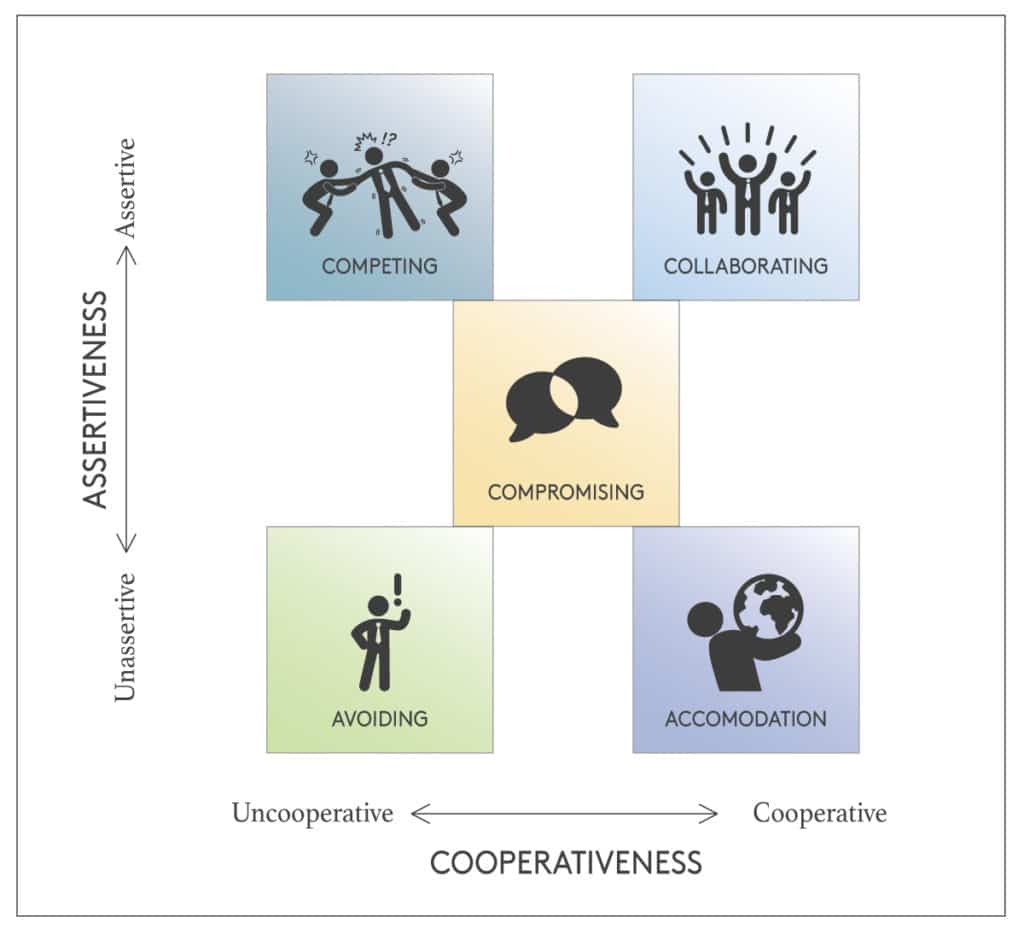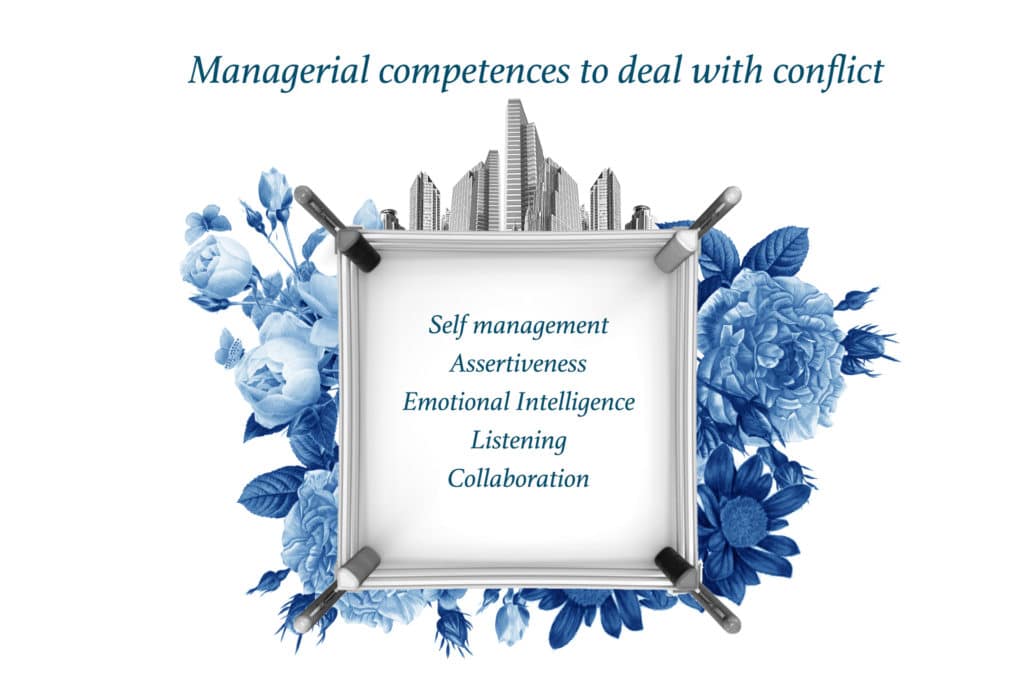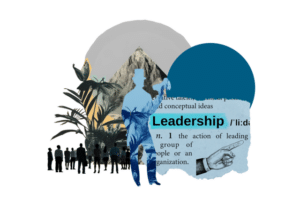The conflict in a company
Within organizations we observe a widespread trend to avoid conflicts as much as possible. Conflicts are considered intrinsically harmful, especially in business contexts.
This happens because conflict is viewed as a hindrance towards achieving goals, a source of distraction, and a waste of time and energy that could be used more productively. It is also perceived as risky and alarming, because conflict can initiate questioning of established habits and possibly shake company dynamics, highlighting possible critical issues.
Additionally, contrasts often arise from unpleasant tensions and emotions that have the potential to trigger further ones. We do not necessarily know how to manage these emotions appropriately and constructively, either because we are unaccustomed to it or because we are not open to welcome and listen to them.
Thanks to its disruptive power, instead conflict can be a key to real company success. If constructively oriented, conflict proves to be a very powerful tool for both individual and collective growth. It can lead to the development of revolutionary and unexpected brilliant solutions, possibly more effective than traditional ones, perhaps now obsolete. If managed appropriately, conflict is not a hurdle to decision-making processes, it is indeed conducive and capable of bringing authentic progress to the company. In this regard, some studies show that most corporate mergers and acquisitions fail not because of conflict, but because of the “organizational silence” that comes from the fear of conflict.
The conflict: from a clash to a great growth opportunity
Conflict is not harmful in itself. What makes the difference is the attitude with which you face the conflict. What is needed is an approach that allows you to transform destructive confrontation into a genuine and fruitful exchange, in which a disagreement becomes a source of innovation and creativity. Conflict management is thus crucial to the outcome and the impact on the individual, the team, and the organization as a whole.
What is dysfunctional within the organizational dynamics then is not the conflict, but the mismanagement of it. Avoiding it and not knowing what behaviours to implement when it arises are the reasons that inevitably lead to failure.

In this regard, S. Proksch, in his book Conflict Management, provides a list of the possible negative consequences of not properly addressing the conflicts that arise in the organisational context. The main ones are:
- Stress and pressure on employees;
- Fragmentation of teams;
- Unproductive use of time.
Paying attention to the disagreements that arise or that could arise, understanding the dynamics, motivations, and relationships involved, is, therefore, crucial for the survival and success of every organization, especially during change and transition phases. The psychological and emotional impact in these delicate moments, when balance and stability are diminished or not present, enables the emergence of conflicts.
For these reasons, for a healthy development of your company, it is important to create a climate in which conflicts can emerge, in which people can express themselves, sharing their skills and opinions. Furthermore, it becomes essential to know how to effectively manage conflicts, once they have arisen, to transform them into productive dialogues and thus grasp their potential for enrichment and growth, both personal and organizational.
Crucial know-how to manage a conflict
What skills are Managers required to have for effective conflict management? What behaviors are needed to adopt, to face and live conflicts constructively?
Conflict Management is one of the skills that we are often asked to coach in our clients. Those who have to get better at it have to learn to manage it in a different way. They must modulate it, and act on it with variable intensity and strength, depending on the situation in which they find themselves and the result they want to obtain.
A collaborative approach to conflict management requires being engaged in the dialog in a profound and meaningful way. Research shows that there is no single approach to conflict resolution. It is the responsibility of the individual or the group to be aware of the problem and to choose the most effective strategies according to the nature of the conflict. (W. K. Roche, P. Teague, Conflict Management Systems, in The Oxford Handbook of Conflict Management in Organizations, 2014.)
Conflict management is part of the Relational Skills category and is taught together with other skills of the same “family”: listening, assertiveness, collaboration, and emotional intelligence.
In our work as Business Coaches, we often hear these considerations from our Coachees: «The conflict weighs on me and it is fatiguing, it is a waste of intelligence and energy …», «I am not an aggressive person …» The question we ask is: «Living the conflict and using it as a strength, how does it make you feel?». The input of the Coach, in this case, helps the Coachee reflect on the emotional consequences of his/her actions and on how much it costs him or her to stay in the current situation.
Often it is also the case that the conflict spreads additionally involving third-party interlocutors inside the company. Thus, a relational dimension that is not well managed between two people becomes a waste of energy, attention, and motivation that can make a team or, in the worst case, even a substantial part of the organization, dysfunctional. Those in top positions must train and raise awareness of the state of mind that exists within the organization and have the know-how to guide it, in order to transform the conflict from a confrontation into a constructive encounter opportunity.
A further idea that we Coaches propose is to focus on “Self-Management”. A skill that has a lot in common with other skills, a support that makes them more powerful and more balanced, through the question «How do you feel and how do you manage yourself?». A lot of strength and incisiveness can be obtained if the conflict is used as an opportunity to clarify. This does not mean entering into a company meeting like a bull in a china closet (although sometimes we see scenes of this type), but rather to behave with strong, clear, decisive behaviours, which go in a specific direction: confronting the other person by listening to him or her and making decisions in view of the common company goal.

Courage is the main element
What valuable behaviors do competent people in Conflict Management have?
To be defined competent in Conflict Management, it is necessary to be consistent, and effective, promptly addressing upcoming critical situations, this way avoiding accumulation of problems. It is important to manage the conflictual relationship in a balanced and constructive way by analyzing the reasons underlying the conflict with the willingness to grasp the other’s point of view. Here emotional intelligence combined with the identification of the counterpart’s needs, interests, and constraints is key in order to find solutions that do not jeopardize individual needs. Collaboration facilitates the exploration of the roots of the conflict and helps identify all possible alternative solutions compatible with the constraints of all parties involved.
I conclude by emphasizing the importance and validity of conflicts in the organization. If managed correctly they guarantee progress. We have seen how this plays a decisive role in the success of problem solving and, consequently, in safeguarding one’s future. Conflicts indicate difficulties that would otherwise go unnoticed. Once they are visible and evident; tensions arise, triggering the need for action and, therefore, for change. Constructive conflicts energize interest and curiosity and add enthusiasm to human coexistence. They bring strength and stimulate the search for creative solutions and innovations.
As mentioned, this skill pertaining strictly to relationships, once applied, supports the very strengthening of the relationships. The most lasting relationships often arise from having successfully overcome conflicts and resolved differences. Constructive friction produces heat, which facilitates trust, which strengthens group cohesion: through a constructive debate, we get to know each other and interact more.
Do not fear conflict. It is not to be considered a taboo in the organisational context, instead, it can be made explicit, and supported with appropriate skills: assertiveness, emotional intelligence, listening, and collaboration, including in the cocktail a good dose of courage.






